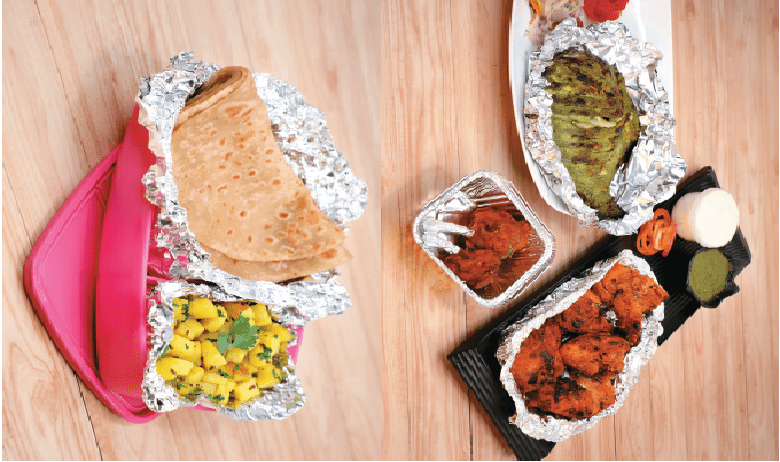Health and comfort of your loved ones’is always a priority when it comes to food. It is no different when you lovingly cook food for them, store in your fridge or pack their tiffin. Your belief that your multi-purpose aluminum foil not only seals the freshness of your food but also wraps up all the love with which you’ve made it, has made it integral to your everyday life. Aluminum foil is synonymous with the Indian Tiffin Box as it is widely used to wrap chapatis, sandwiches, rolls, snacks, etc to keep the freshness of the food intact till it is consumed. It does not allow the moisture and aromas of the food to escape thereby helping to retain the taste and freshness of your food long after it is packed. Besides, it’s also 100% recyclable making for a sustainable option. But of late some reports may have made you anxious.There have been discussions about the risks associated with the possible ingestion of aluminum through aluminum foil. If you were getting worried, then here are some valuable facts that should help allay your fears. A lot of the reports you read could be unsubstantiated with risks being exaggerated.The fact remains that foil is a safe wrap for your food and a lot of research by reputed international organisations support this. It is estimated that humans consume 10mg of aluminum daily and most of it comes from foods (around 96%).
It is important to note that foil and aluminum cookware are less significant when compared to other sources of aluminum intake especially foods and medicines (antacids). Natural foods like green peas, potatoes, chicken, spinach, tea all contain aluminum.The contribution of foil and aluminum cookware in the daily intake of aluminum is less significant. As per the US Department of Health and Human Services, ATSDR, exposure to aluminum naturally present in food and water, and through pots and pans, are not considered to be harmful. Most aluminium in food, water and medicines leaves your body quickly in the faeces. Much of the small amount of aluminium that does enter the bloodstream will leave your body through the urine. In fact, as per the joint study of theWorld Health Organization(WHO) and Food and Agricultural Organization (FAO) in 2011, an intake of 2mg of aluminum per week per kg of body weight is ed safe. For instance, for a human body of 60 kgs, 120mg aluminum intake in a week over a lifetime is treated to be within limits.
Also, all reports linking aluminum with Alzheimer’s disease and are unsubstantiated. As per the Alzheimer’s Association, studies have failed to confirm any role of aluminum causing Alzheimer’s.The American Cancer Society’s website ly states that no clear link has been established between containing antiperspirants and breast cancer. What works in Aluminum foil’s favour is that it is light weight and conductor of heat, besides providing an absolute barrier moisture, light, oxygen and contamination while keeping.
Aluminium foil is your versatile companion in the kitchen you always trusted upon. Research suggests that most of the fears around the use of foil in food wrapping are misplaced and exaggerated.The benefits of this humble aluminum foil in your kitchen are multi-fold.
The aromas inside. .Above all, aluminium is endlessly recyclable with no loss in quality. It is globally used for increasing shelf life of food items, thereby reducing food wastage. Multitude of such researches indicate that Aluminum foil is safe for packing foods. Fact remains that you consume more aluminum.
Through natural foods and medications than through foil as such there is no need to bar use of foil from your kitchen. Foil’s barrier properties and its versatility makes it a truly hassle-free companion in your kitchen. Foil wraps love and ensures your loved ones enjoy the lovingly prepared tiffin meals.

